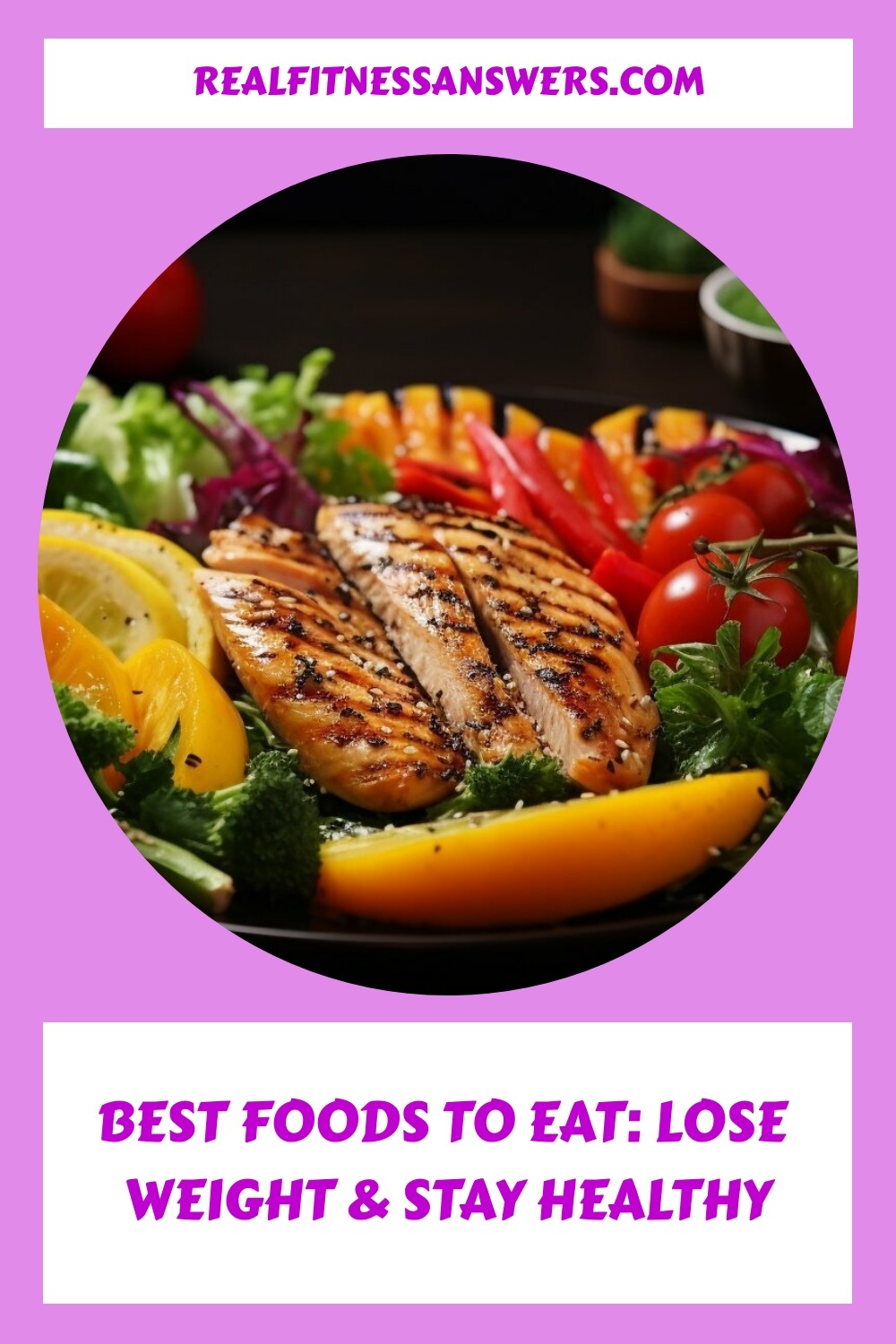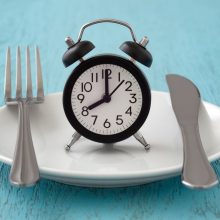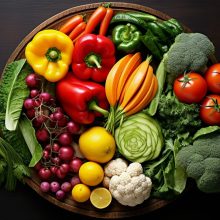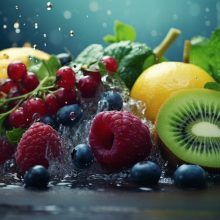Best Foods to Eat: Lose Weight & Stay Healthy
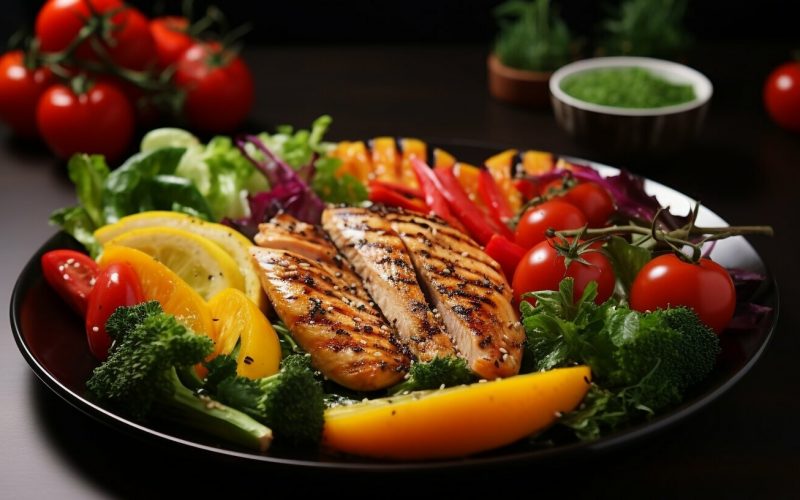
Losing weight can be a challenging journey, but choosing the right foods can make it easier and more enjoyable. While fad diets may promise quick results, the key to effective and sustainable weight loss is incorporating healthy, nutrient-dense foods into your diet.
It is important to note that losing weight should not compromise your overall health. A balanced diet, along with regular exercise and adequate sleep, is crucial to achieving and maintaining a healthy weight.
So, what foods should you eat to lose weight? In this article, we will explore the best foods for weight loss and how to incorporate them into your diet.
Key Takeaways:
- Choosing the right foods is essential for effective and sustainable weight loss.
- A balanced diet, exercise, and sleep are crucial to overall health and weight management.
- Incorporating nutrient-dense foods into your diet can make weight loss easier and more enjoyable.
Understanding Weight Loss: The Basics
Before diving into the best foods to eat for weight loss, it’s important to understand the basics of how weight loss occurs. To put it simply, weight loss happens when you consume fewer calories than your body needs to function and maintain its current weight. This is known as creating a calorie deficit.
While exercise is an important factor in weight loss, your diet plays an even bigger role in creating a calorie deficit. By choosing nutrient-dense, low-calorie foods, you can feel full and satisfied while still consuming fewer calories overall.
It’s important to note that crash diets or extreme calorie restriction can be harmful and unsustainable. The most effective weight loss diets consist of balanced, nutritious meals that promote healthy habits and long-term weight management.
Click here to discover how to lose weight fast!
Incorporating Nutritious Foods
When it comes to losing weight and staying healthy, incorporating nutritious foods into your diet is key.
Lean proteins: Lean sources of protein, such as chicken, fish, and tofu, not only support weight loss but also help to build and maintain muscle mass.
| Examples of lean proteins: | Benefits: |
|---|---|
| Grilled chicken breast | Low in calories and high in protein |
| Salmon | A good source of omega-3 fatty acids and protein |
| Tofu | A vegetarian source of protein that is low in calories |
Whole grains: Whole grains are a great source of fiber, which helps to keep you feeling full and satisfied.
“Eating whole grains has been associated with a lower body mass index (BMI) and a reduced risk of obesity.”
Fruits and vegetables: Fruits and vegetables are packed with vitamins, minerals, and fiber, making them great choices for weight loss and overall health.
- Broccoli: High in fiber and low in calories, broccoli is an excellent choice for weight loss.
- Apples: Apples are a good source of fiber and have been shown to help promote feelings of fullness.
- Berries: Berries are high in fiber and antioxidants, making them a great choice for weight loss and overall health.
Dairy: Dairy products like Greek yogurt and cottage cheese are high in protein and calcium, which can help with weight loss and strengthen bones.
By incorporating these nutritious foods into your diet, you can support your weight loss goals and improve your overall health and wellbeing.
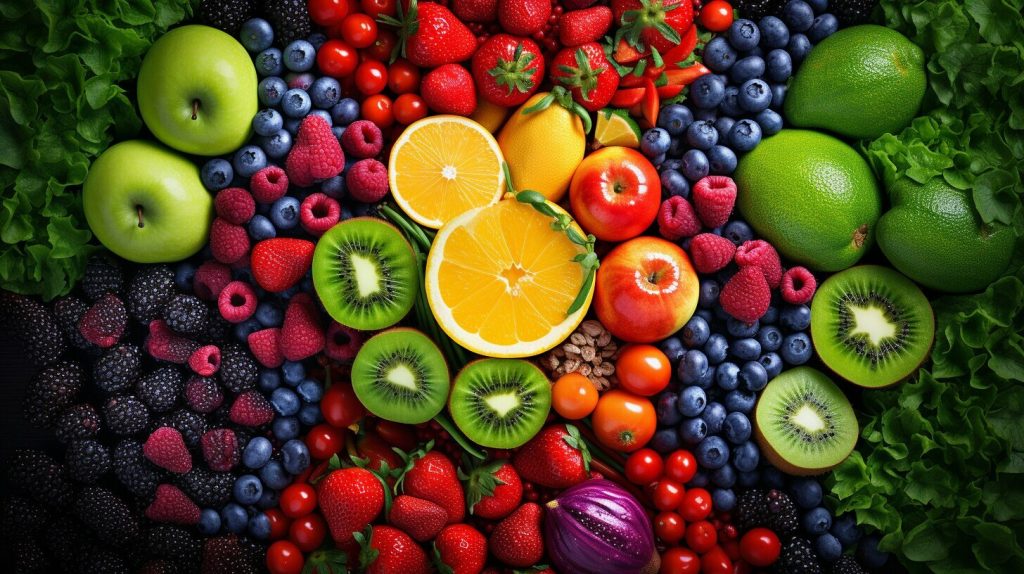
Natural Weight Loss Foods
If you’re looking to shed pounds, choosing whole, unprocessed foods can be a powerful tool. Natural weight loss foods, such as green tea, nuts, and seeds, have unique properties that can aid in weight loss efforts.
Green tea is rich in antioxidants called catechins, which have been shown to boost metabolism and increase fat burning. Incorporating a cup or two of green tea into your daily routine can be a simple way to support your weight loss goals.
| Food | Benefits |
|---|---|
| Nuts and seeds | High in healthy fats, fiber, and protein, which can keep you feeling full and satisfied. They also contain compounds that can help reduce inflammation and support heart health. |
| Fatty fish | Rich in omega-3 fatty acids, which can reduce inflammation and improve heart health. These healthy fats can also promote weight loss by decreasing appetite and increasing fat burning. |
| Whole fruits | High in fiber, water, and antioxidants, which can help reduce inflammation and support overall health. Whole fruits can also be a satisfying and healthy snack option to help curb cravings. |
Incorporating these natural weight loss foods into your diet can not only support your weight loss efforts but also promote overall health and wellness. Try adding a handful of nuts and seeds to your morning oatmeal, grilling up some fatty fish for dinner, or snacking on a piece of whole fruit for a sweet treat.
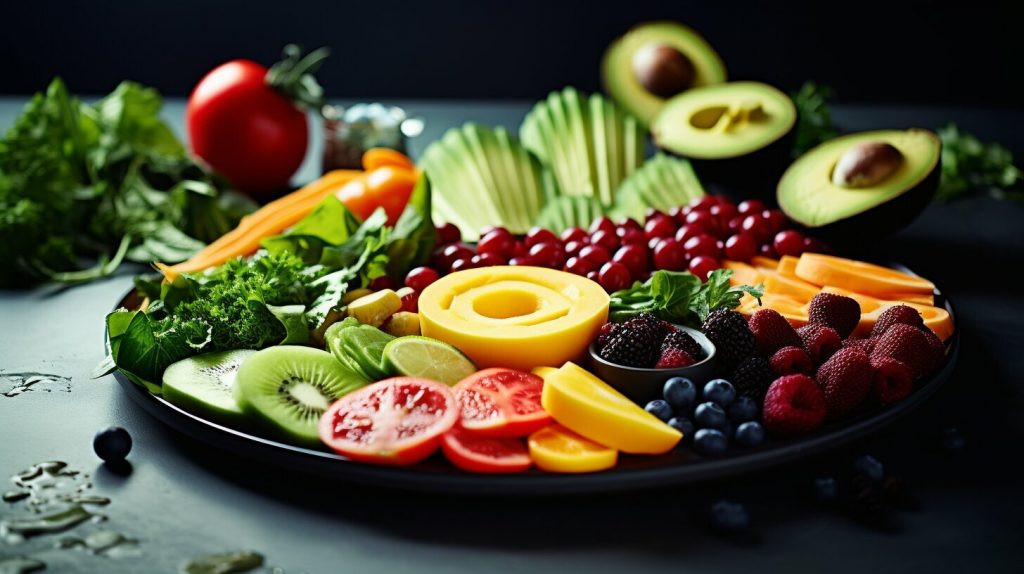
Weight Loss Friendly Foods
Who says eating healthy has to be boring? The key to sustainable weight loss is finding nutritious foods that are also delicious. Here are some weight loss friendly foods that you’ll love:
| Food | Why it’s Weight Loss Friendly |
|---|---|
| Avocado | Avocado is high in healthy fats and fiber, which help keep you full and satisfied. It’s also rich in vitamins and minerals. |
| Greek Yogurt | Greek yogurt is high in protein, which can help you feel full and regulate your appetite. It’s also a good source of calcium and probiotics. |
| Dark Chocolate | Dark chocolate is packed with antioxidants and can help reduce cravings for sweet, high-calorie foods. |
These foods can be incorporated into your meal plan in a variety of ways. Try topping a salad with avocado slices, mixing Greek yogurt into your morning smoothie, or enjoying a piece of dark chocolate as an afternoon snack.
Don’t be afraid to experiment with different flavors and combinations to find what works for you. Eating healthy doesn’t have to mean sacrificing taste!
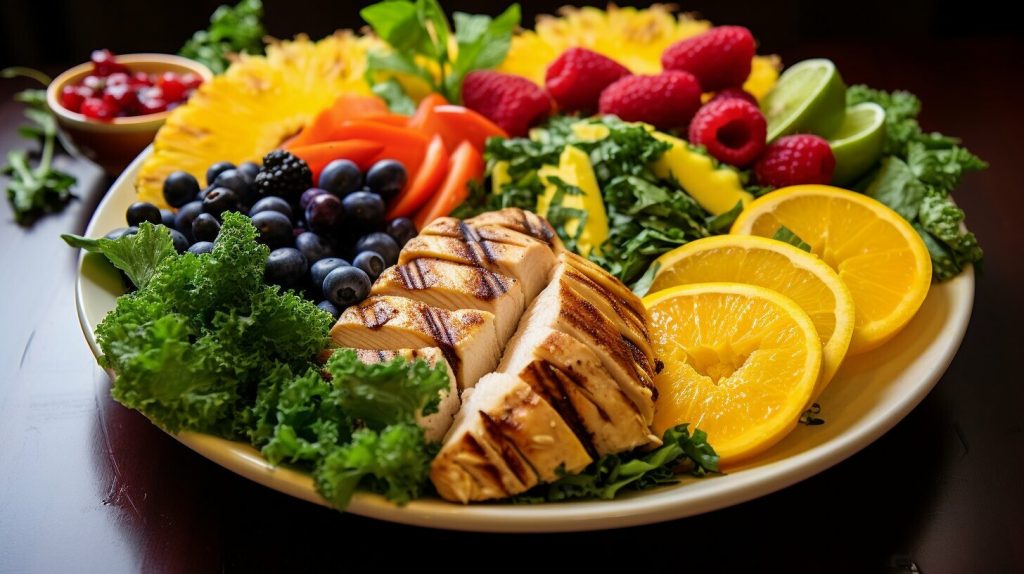
Creating a Balanced Meal Plan
When it comes to weight loss, creating a balanced meal plan is key. Not only does it ensure that you are getting all the nutrients your body needs to function optimally, but it also helps to keep you feeling full and satisfied throughout the day. Here are some tips for creating a balanced meal plan:
| Food Group | Servings |
|---|---|
| Protein | 3-4 oz per meal |
| Vegetables | 2-3 cups per meal |
| Complex Carbs | 1/2 – 1 cup per meal |
| Healthy Fats | 1-2 servings per meal |
When planning your meals, aim to include a variety of nutrient-dense foods from each of these food groups. Lean proteins such as chicken, fish, and tofu, along with whole grains like brown rice and quinoa, and plenty of fruits and vegetables should make up the bulk of your meals.
Don’t forget to incorporate healthy fats as well, such as avocados, nuts, and olive oil. These foods help to keep you feeling full for longer periods of time, and also provide important nutrients that your body needs to function properly.
It’s also important to practice portion control and avoid overeating. One simple way to do this is to use smaller plates and bowls, which can help to trick your brain into thinking that you are eating more food than you actually are.
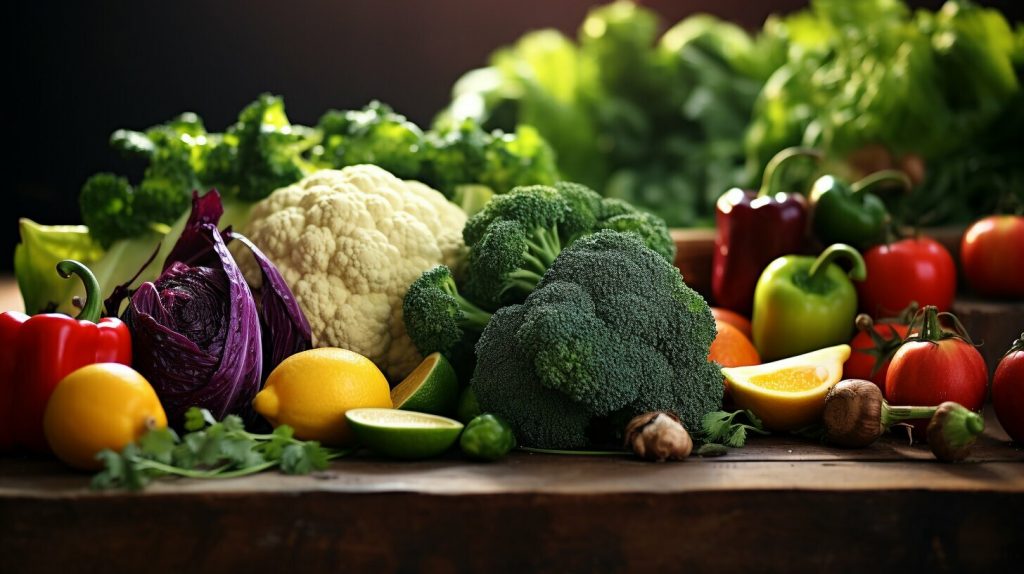
By following these guidelines and incorporating a variety of healthy, nutrient-dense foods into your meal plan, you can support your weight loss goals while also fueling your body with the nutrients it needs to stay healthy and strong.
Click here to discover how to lose weight fast!
The Power of Hydration
Proper hydration is an essential component of any weight loss journey. Not only does it help to flush out toxins from the body, but it can also aid in reducing appetite and improving digestion. Drinking enough water throughout the day is one of the easiest and most effective ways to support weight loss.
The general recommendation for daily water intake is 8 cups (64 ounces) per day, although this may vary depending on factors such as physical activity level and climate. Additionally, consuming hydrating foods like watermelon, cucumbers, and leafy greens can also contribute to overall hydration levels.
| Drink | Calories |
|---|---|
| Water | 0 |
| Unsweetened tea | 0 |
| Black coffee | 0 |
| Soda | 150-200 |
While water should be the primary source of hydration, other beverages like unsweetened tea and black coffee can also contribute. However, it’s important to limit or avoid sugary drinks like soda, which can add unnecessary calories to the diet.

Remember, staying properly hydrated is key to achieving and maintaining weight loss goals. Make sure to prioritize drinking enough water and incorporating hydrating foods into your meal plan on a daily basis.
Staying Consistent and Building Healthy Habits
Now that you’ve learned about the best foods for weight loss, it’s important to stay consistent and build healthy habits. Here are some tips to help you:
- Plan your meals: Take some time each week to plan out your meals and snacks. This can help you make healthier choices and avoid impulsive eating.
- Practice portion control: Use measuring cups and spoons to ensure you are eating the right amounts of each food. This can help you stay within your daily calorie goals.
- Stay active: Incorporate regular physical activity into your routine, such as going for a walk or jog, taking a fitness class, or lifting weights. This can help you burn calories and build lean muscle.
- Find healthy alternatives: If you have a favorite unhealthy food, try to find a healthier alternative that you enjoy. For example, if you love potato chips, try swapping them for air-popped popcorn.
Remember, building healthy habits takes time and effort. Don’t get discouraged if you slip up occasionally. Just get back on track and keep moving forward.
Meal Planning Made Easy
Meal planning can be a simple and effective way to stay on track with your weight loss goals. Here’s a sample meal plan to get you started:
| Meal | Food | Portion Size |
|---|---|---|
| Breakfast | Oatmeal with berries and almonds | 1/2 cup oats, 1/2 cup berries, 1 oz almonds |
| Snack | Celery and carrot sticks with hummus | 1 cup veggies, 2 tbsp hummus |
| Lunch | Grilled chicken salad | 4 oz chicken, mixed greens, 1/2 cup veggies, 1 tbsp dressing |
| Snack | Greek yogurt with fruit | 1 cup yogurt, 1/2 cup fruit |
| Dinner | Baked salmon with roasted vegetables and quinoa | 4 oz salmon, 1 cup veggies, 1/2 cup quinoa |
Make sure to adjust portion sizes and food choices based on your individual calorie needs and preferences.
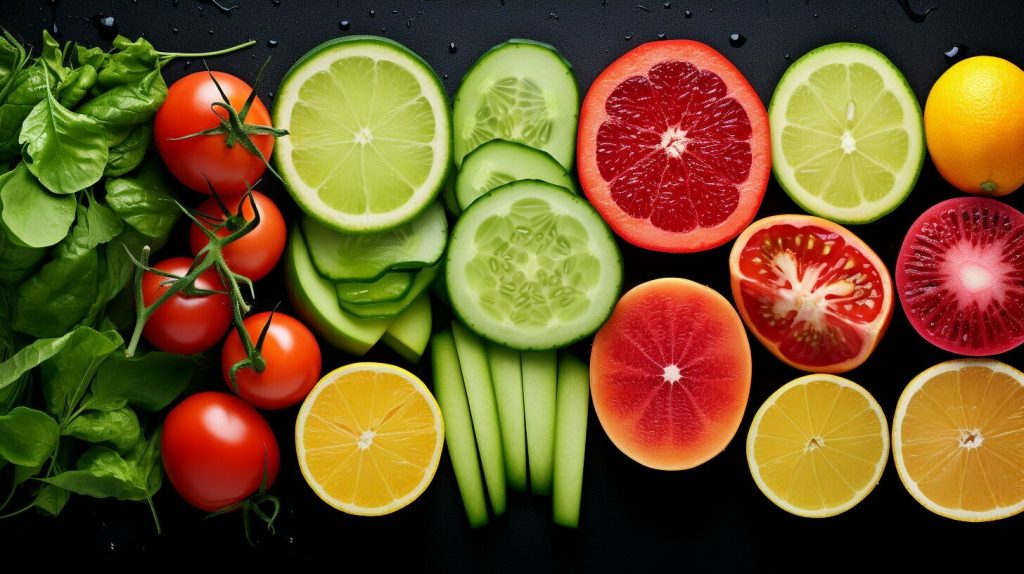
Hydration is also key to weight loss success. In addition to drinking plenty of water, incorporate hydrating foods into your diet, such as cucumbers, watermelon, and celery. These foods are not only low in calories but also help keep you feeling full and satisfied.
By incorporating these tips into your daily routine, you can create healthy habits that support your weight loss goals and promote overall health and wellness.
Conclusion
Choosing the right foods is key to achieving effective and sustainable weight loss. By incorporating nutrient-dense foods, natural weight loss foods, and weight loss-friendly foods into your daily meals, you can create a healthy and balanced meal plan to support your weight loss goals.
Consistency is Key
It’s important to stay consistent in your food choices and build healthy habits to maintain a healthy weight. Plan your meals, practice portion control, and incorporate regular physical activity into your routine. By doing so, you’ll not only lose weight but also improve your overall health.
Hydration is Essential
Don’t forget the power of hydration. Drinking water and consuming hydrating foods can aid in weight loss and support overall health. Incorporate foods such as cucumbers and watermelon into your diet to ensure proper hydration.
Start Your Journey
It’s time to take control of your health and start incorporating the best weight loss foods into your diet. By making small changes and building healthy habits, you can achieve your weight loss goals and maintain a healthy lifestyle.
Click here to discover how to lose weight fast!
FAQ
Q: What foods should I eat to lose weight?
A: When trying to lose weight, it’s important to focus on nutrient-dense foods that are low in calories. This includes lean proteins, whole grains, fruits, and vegetables.
Q: How does weight loss occur?
A: Weight loss occurs when you create a calorie deficit, meaning you consume fewer calories than your body needs. A balanced diet consisting of the right foods can help you achieve this.
Q: What are some nutritious foods for weight loss?
A: Nutritious foods that support weight loss include lean proteins like chicken and fish, whole grains like quinoa and brown rice, and a variety of fruits and vegetables.
Q: Are there any natural weight loss foods?
A: Yes, there are natural foods that can aid in weight loss. Some examples include green tea, nuts, and seeds, which have unique properties that support weight loss.
Q: What are some weight loss friendly foods?
A: There are many delicious foods that are also supportive of weight loss. Avocados, Greek yogurt, and dark chocolate are a few examples. You can incorporate them into meals and snacks for added enjoyment.
Q: How can I create a balanced meal plan for weight loss?
A: To create a balanced meal plan, include foods from different food groups and focus on portion control. Sample meal ideas and mindful eating can help you stay on track with your weight loss goals.
Q: What is the role of hydration in weight loss?
A: Proper hydration is important for weight loss. Drinking water and consuming hydrating foods like cucumbers and watermelon can support your weight loss efforts.
Q: How can I stay consistent and build healthy habits?
A: To stay consistent, you can plan your meals, practice portion control, and incorporate regular physical activity into your routine. These healthy habits will help you achieve sustainable weight loss.


